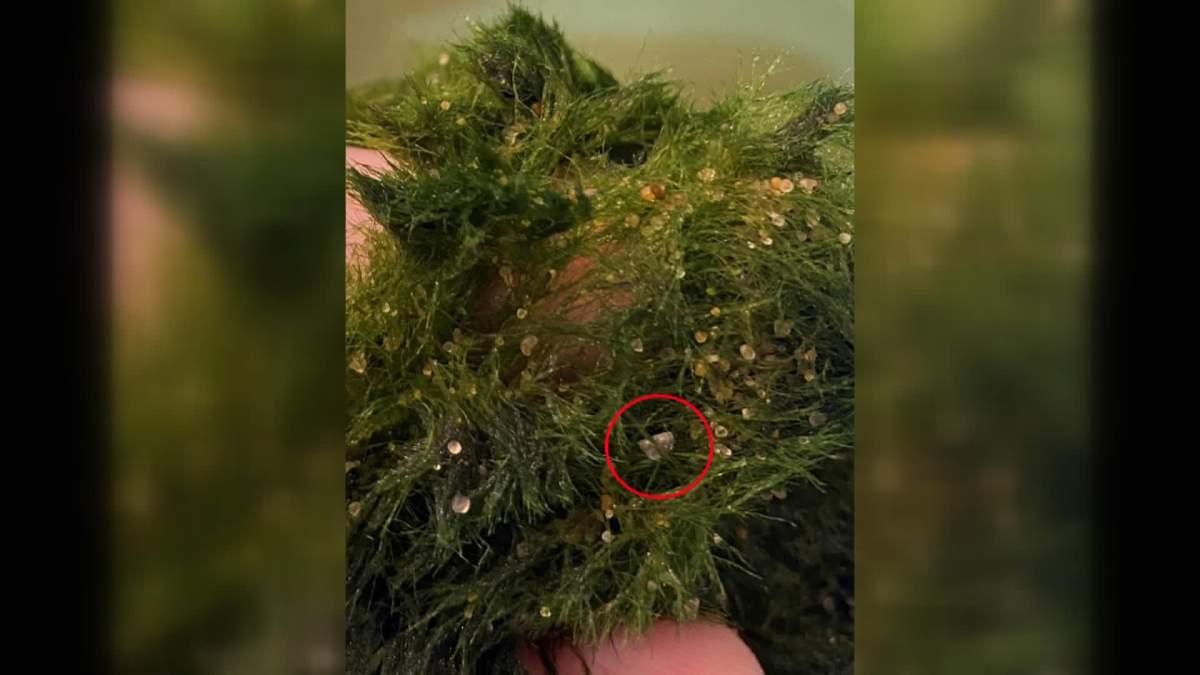A tiny invader that can have a massive impact on the natural world, the zebra mussel is among the most feared invasive species in British Columbia.

You only need to travel three provinces to the east to see and hear about the tremendous impact the highly invasive species has had on lakes in Manitoba.
“The problem is irreversible and in fact, it’s a catastrophe — it’s a disaster,” Dr. Eva Pip, a water quality and ecosystem expert with the University of Winnipeg, told Global News in 2015.

While B.C. has set up a boat inspection program at provincial and U.S. borders in recent years to stop vessels accidentally bringing in zebra mussels, there was huge surprise when the invasive species turned up inside residential homes.
“It’s very concerning,” Dave Webster, COS Alien Invasive Species lead, told Global News when minute zebra mussels were found inside moss balls, an aquarium feature.

Get breaking National news
“We’re trying to work with the industry to stop this product from being put out to the public.”
Because one zebra mussel can quickly turn into millions, B.C. Conservation officers quickly embarked on a sweep of pet stores to eliminate potential risks.

“Suspected or lab-confirmed contaminated moss balls have been found in Terrace, Invermere, Kamloops, the Lower Mainland and on Vancouver Island,” a release from the B.C. Environment Ministry stated on Thursday afternoon. “Most of the moss balls seized were found on the Lower Mainland.”
Since the first reports about the contaminated mussels in early March, Conservation officers said they collected nearly 3,000 moss balls which were suspected or confirmed to be contaminated with zebra mussels.
Often called “Marimo moss balls,” the popular ornamental aquarium item has been found to be contaminated with the highly invasive species across Canada, according to the Ministry.
The moss balls are sometimes used as decorative houseplants, it said.

The Ministry of Environment said investigations have linked some potentially contaminated moss balls to international shipments
“Conservation officers have reached out to more than 1,100 pet and aquarium plant stores, aquatic retailers and distributors throughout the province, and have conducted hundreds of on-site inspections to prevent the sale of potentially contaminated moss balls,” according to the Ministry, which commended the industries cooperation.
“Many retailers and distributors have voluntarily pulled the moss balls from their shelves.”
For more information about proper disposal of moss balls, check out the Ministry of Environment information here.
Zebra and quagga mussels are equally devastating to the environment. More information can be found here.
Anyone who finds zebra mussels is asked to call the Report All Poachers and Polluters (RAPP) hotline, toll-free, at 1 877 952-7277 to report their find.





Comments
Want to discuss? Please read our Commenting Policy first.